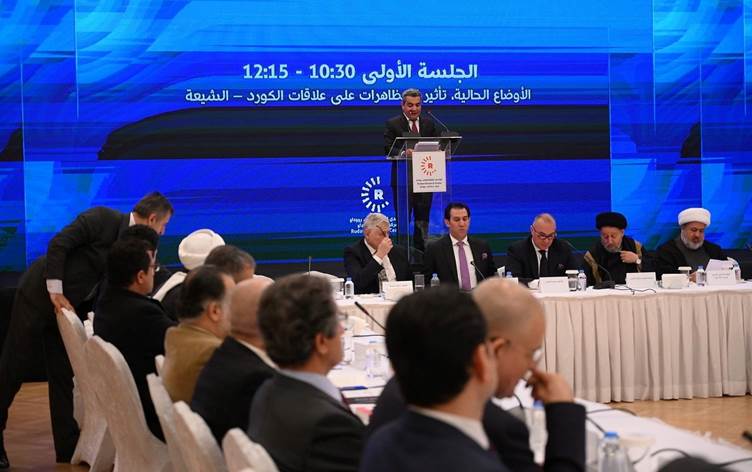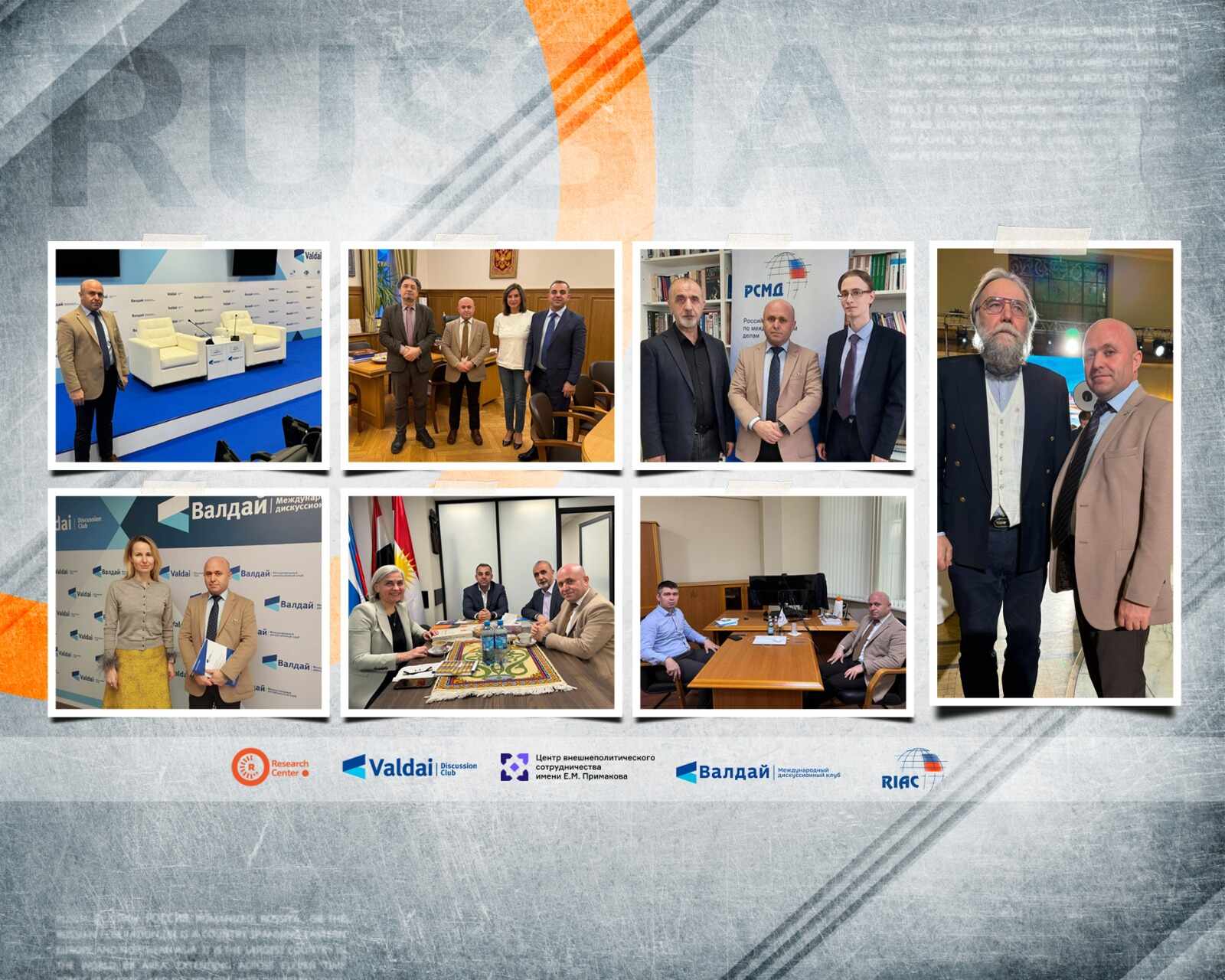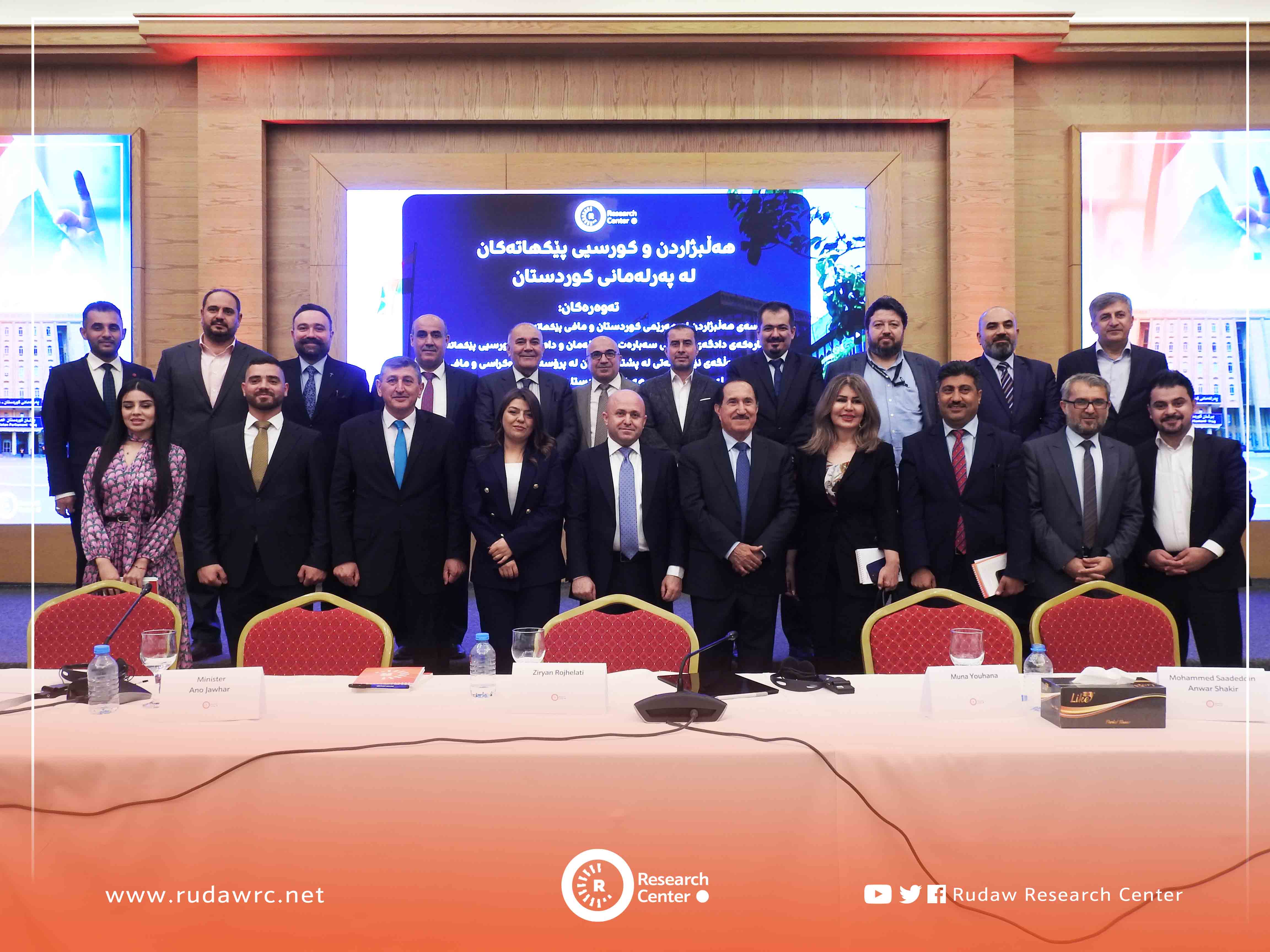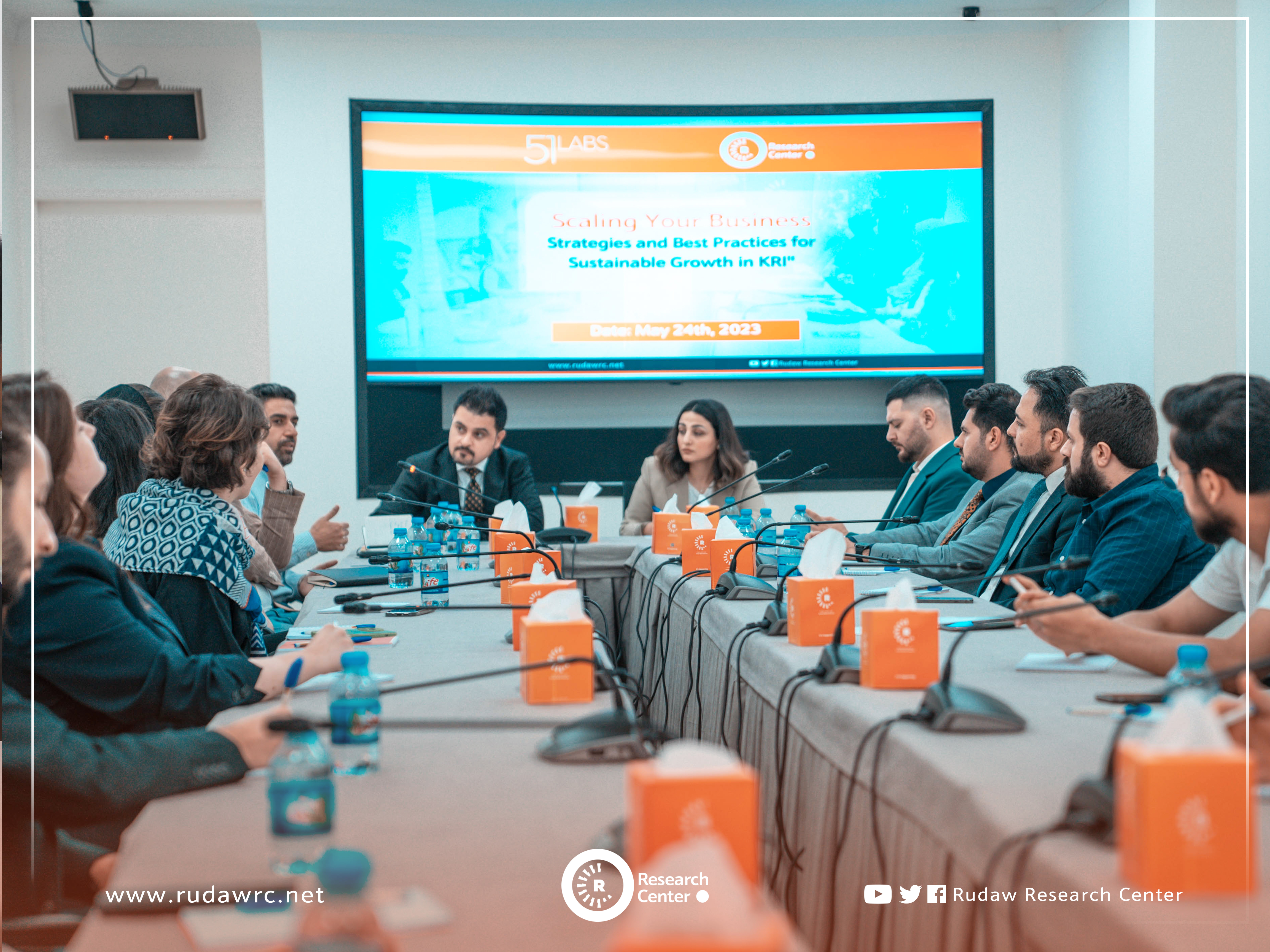| RRC |
ERBIL, Kurdistan Region – Kurdish and Shiite academics and religious clerics called on Sunday for unity between the two groups to head off domestic and foreign threats to Iraqi peace and prosperity at a forum organised by Rudaw Media Network in the Kurdistan Region capital of Erbil.
The Najaf-Erbil forum for Iraqi dialogue brought leading figures from Iraq’s religious Shiite majority, together with Kurds, Iraq’s largest ethnic minority. A series of three panels sought to discuss the impact of ongoing protests on relations between Kurds and Shiites in Iraq, and the future of relations between the two groups.
In an introductory speech, Rudaw Media Network CEO Ako Mohammed highlighted the historical alliance between Kurdish and Shiite leaders.
“Relations between Kurds and Shiites are historical. Mullah Mustafa Barzani worked with Sistani and Mohammad Baqir al-Hakim to stop bloodshed between Kurds and Arabs in Iraq,” Mohammed said. “Kurds and Shiite united and destroyed the Baathist regime and Saddam Hussein.”
The aim of the forum was to further “develop relations between Kurds and Shiites,” Mohammed added, and provide a space where attendees could discuss contentious topics “without tension or filter.”
Sayid Salih al-Hakim, director of al-Qiam dialogue and coexistence forum, reminded Kurdish attendees to “look at the real Shiites and their society… not the Islamic political parties, to develop their ties and relations.”
The distinction to be made between the Shiite political establishment and general public is all too clear amid the ongoing nationwide anti-government protests, which have rocked the predominantly Shiite centre and south of the country.
Calling for an end to corruption, an improved provision of basic services, and an overhaul of Iraq’s system of governance, protesters were met with deadly repression. More than 500 protesters and members of the security forces have been killed since October 1, and at least 17,000 have been wounded.
Neither anti-government protests nor demonstrations of solidarity with protesters in central and southern Iraq have taken hold of the Kurdistan Region.
Abdulrahman al-Shiwaily, lecturer of political science and international relations at Baghdad’s Mustansiriya University, began panel proceedings by calling on the Kurds to make a stance on the Iraqi protests.
“Kurds today should have a decisive opinion about the protests in Iraq. Today as Shiites we are suffering during the protests, while Kurds have neither condemned nor supported the demands of the protesters,” Shiwaily said.
Jawed al-Musawi, Deputy Secretary General of Iraq’s Scientist Shura (forum), warned of a karmic response for Kurds if they fail to show support for the protests.
“If Kurds do not intervene and support the protesters in Iraq, then once protesters win they will stand against the Kurds,” Musawi warned.
Farhad Alaadin, a Kurdish former advisor to Iraqi president Barham Salih, suggested Kurds may have steered clear of involvement or solidarity with the protests because they view them as a solely “Shiite movement.”
“Today the protests in Iraq are Shiite youth protesting against the Shiite government,” Alaadin said. “Kurds did not want to interfere in Shiite protests against Shiite politicians.”
One Kurdish official at today’s event expressed their support of the protests on behalf of Kurds.
“The Kurds support the current protests in Iraq, and strongly condemn the killing of the peaceful protesters,” Kurdish former member of Iraqi parliament Masoud Haider said.
Though quiet during the protests, some Kurdish leaders have expressed worry about what constitutional changes as demanded by protesters might mean for the rights they acquired in the current constitution, adopted in 2005. Haider believes the current Iraqi constitution is the “protector of Kurdish rights.”
Abdullah al-Waisi, President of the Islamic Scholars Association in Kurdistan, believes Iraqi Shiites still believe Kurds are a second class community – a perception that will mean constitutional changes will harm Kurds and be detrimental to Kurd-Shiite relations.
“Many in Iraq and on the Shiite street still think Kurds have no rights and are a second class community, or have no right to be part of the Iraqi government,” Waisi said.
“If the protests in Iraq can make change and implement only the articles in Iraqi constitution that are against the Kurds, then there would be no relations.”
As well as contention over changes to the constitution, the threat of external influence in Iraq must also be addressed, Iraqi academic and political analyst Ghalib Shabindar told forum attendees.
“The constitution is not the only problem. We have to mention the problems of external influences,” Shabindar said. “Will changing the constitution save Iraq from being turned into a battlefield by other countries in the region?”
He emphasised the power of unity across ethnic and religious lines as an antidote to external influence.
“Neither Iran nor Saudi can interfere if Shia, Kurds, and Sunnis are united. Kurds need to realise that if there is no unity between Iraq and Kurdistan the development will be ruined.”
Unity among Iraq’s ethnic and sectarian groups can also counter the cooptation of protests by the country’s politicians and political parties for their own interests, Musawi said.
“There are politicians who are taking advantage of the [protest] movement in Iraq,” he warned. “Politicians cannot fix Iraq, but academics, writers, clerics and wise people can change Iraq’s reality.
“Therefore, we need to unite in order to achieve change.”





